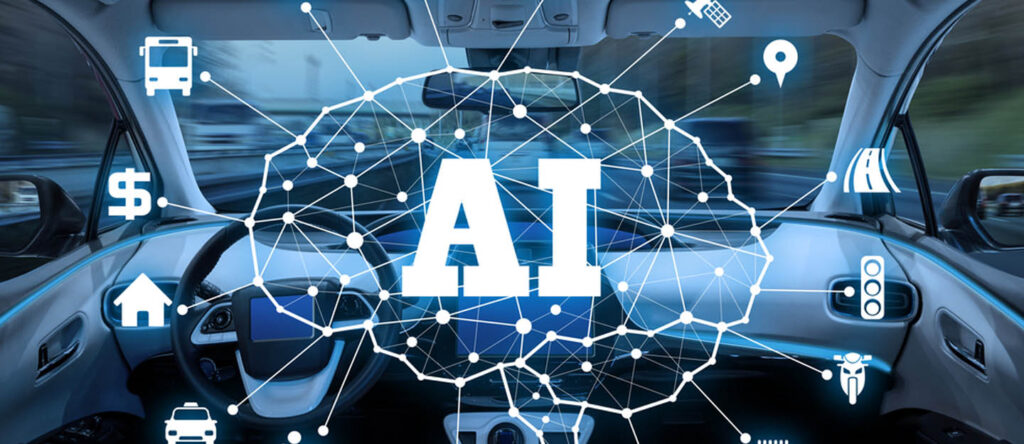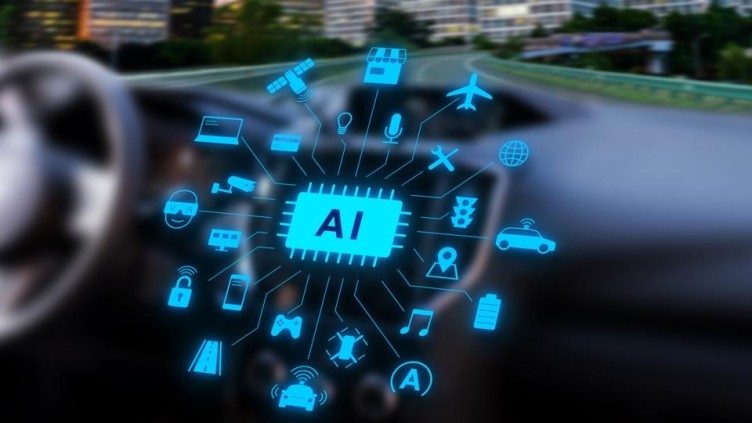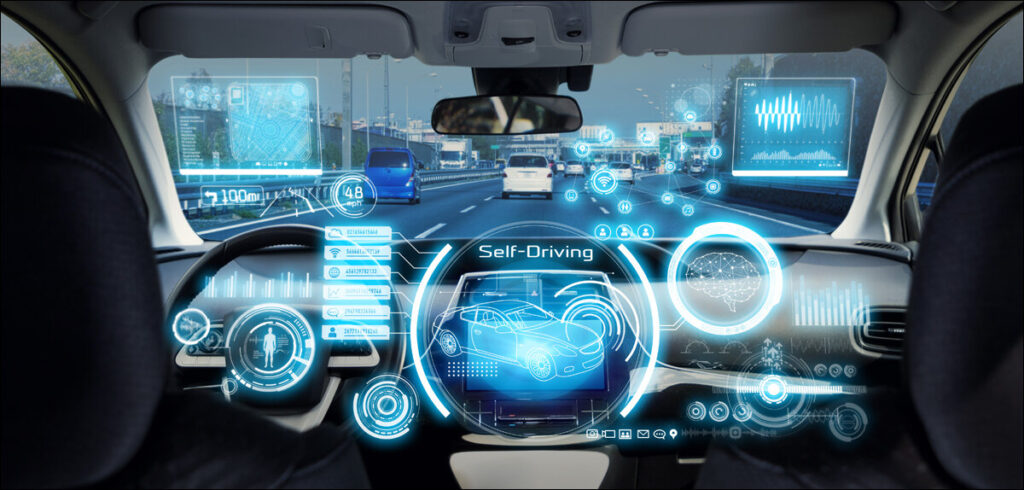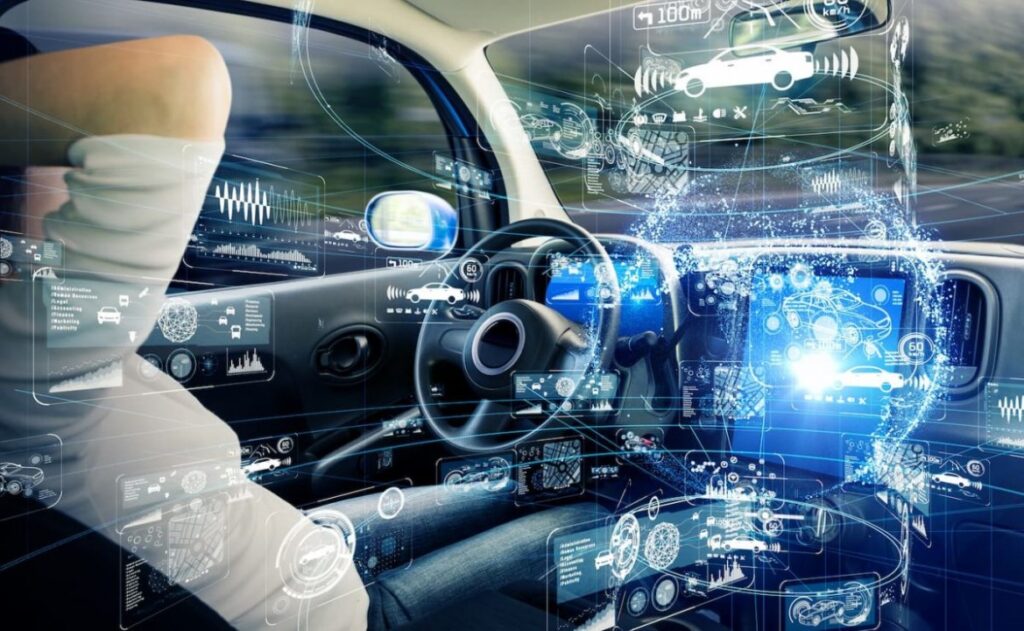The Role of AI in Electric Vehicles: From Battery Management to Autonomous Driving
Electric vehicles (EVs) are quickly becoming a dominant force in the automotive industry. Thanks to advancements in technology, more people are turning to EVs as an eco-friendly alternative to traditional cars. However, the driving force behind many of the latest innovations in EVs is Artificial Intelligence (AI). From managing batteries efficiently to enabling autonomous driving, AI plays a crucial role in shaping the future of electric vehicles. In this blog, we’ll explore how AI is enhancing battery management, optimizing energy use, and pushing the boundaries of autonomous driving to make electric vehicles smarter and more efficient.
Enhancing Battery Management with AI
The heart of every electric vehicle is its battery. Managing it efficiently is essential for extending the life of the vehicle and increasing driving range. AI is transforming how batteries are monitored, charged, and maintained.
Real-Time Monitoring
One of the primary roles AI plays in battery management is real-time monitoring. Traditional batteries lack the intelligence to provide detailed information about their health, performance, and charge levels. AI steps in to fill this gap. Using machine learning algorithms, AI monitors various parameters such as temperature, voltage, and charge cycles. This real-time data ensures that the battery performs optimally.
Predictive Maintenance
AI-powered systems are not just reactive but predictive. They can forecast when a battery might need maintenance based on its usage patterns and current condition. This predictive capability prevents unexpected breakdowns and prolongs battery life. In addition, AI can optimize charging times to avoid overcharging, which is a common cause of battery degradation.
Optimizing Energy Use
AI can help balance energy consumption within an electric vehicle. Whether it’s managing power between different components or optimizing the vehicle’s acceleration and braking, AI plays a pivotal role in energy efficiency. This, in turn, increases the vehicle’s range, one of the most critical factors for EV users.
Autonomous Driving: AI at the Wheel
Autonomous driving is perhaps the most talked-about advancement in the automotive industry, and AI is at the heart of it. While electric vehicles are paving the way for a cleaner future, AI-driven autonomous driving is creating the foundation for a safer and more efficient one.
Perception and Decision-Making
AI is what allows an autonomous vehicle to perceive its environment. Through a combination of sensors, cameras, and radar, an AI system gathers vast amounts of data about the vehicle’s surroundings. However, perception is only one part of the equation. The real power of AI lies in its ability to process this data in real-time and make decisions that mimic human drivers. These decisions range from simple tasks like maintaining speed and lane position to more complex actions like navigating intersections or avoiding obstacles.
Machine Learning for Improved Driving Performance
Autonomous driving relies heavily on machine learning. With each mile driven, AI systems collect and analyze data, learning from each driving experience. Over time, these systems become more accurate and better equipped to handle a variety of driving conditions. Machine learning allows autonomous vehicles to improve their performance, making driving safer and more reliable.
Safety and Reducing Human Error
One of the most significant advantages of AI in autonomous driving is the reduction of human error. Most accidents on the road result from driver error. AI, on the other hand, can process more information than a human ever could. It can predict dangerous situations and take corrective action much faster than a human driver. As AI becomes more sophisticated, autonomous vehicles will likely become even safer.

AI-Powered Connectivity: Smart Cars in a Smart World
Electric vehicles are not just becoming more autonomous; they are also becoming more connected, thanks to AI. The integration of AI with the Internet of Things (IoT) is creating smarter vehicles that communicate with other cars, traffic systems, and even the cloud.
Vehicle-to-Everything (V2X) Communication
AI facilitates V2X communication, allowing electric vehicles to connect with the surrounding infrastructure and other vehicles. This connectivity enables real-time data sharing, which improves traffic flow and safety. For example, an AI-powered electric vehicle can receive data from traffic lights, other vehicles, or road sensors to predict traffic jams or hazardous conditions, making the necessary adjustments in advance.
Over-the-Air (OTA) Updates
AI and IoT also enable over-the-air software updates for electric vehicles. This means that car manufacturers can remotely update the vehicle’s software, improving performance, adding new features, or fixing issues without the need for a physical visit to the dealership. It’s an essential aspect of maintaining the vehicle’s technology up to date as AI algorithms evolve and improve.
Smart Navigation and Route Optimization
AI is also revolutionizing navigation. Traditional GPS systems rely on maps that are static. AI, however, processes real-time data to offer dynamic routing, accounting for current traffic conditions, weather, and even the driver’s preferences. This optimized routing ensures quicker, more efficient journeys, saving both time and energy.
The Future of AI in Electric Vehicles
The future of AI in electric vehicles holds even more exciting potential. As AI technology continues to evolve, we can expect to see even more advancements in how EVs are managed and how autonomous driving becomes a regular part of our lives.
Self-Learning Systems
The more data AI systems collect, the smarter they become. In the future, electric vehicles might not just rely on pre-programmed data but will be able to learn and adapt in real-time. This self-learning capability could allow vehicles to personalize driving experiences based on individual habits, making the ride smoother and more tailored to each driver.
Full Autonomy: The Path to Level 5 Automation
Currently, we are at Level 2 and Level 3 autonomy in many electric vehicles. This means that cars can handle tasks like steering and braking but still require human oversight. AI is slowly pushing us toward Level 5 automation, where vehicles will be fully autonomous, capable of driving in any condition without human intervention. Achieving this level of autonomy requires significant advancements in AI technology, but the groundwork is already being laid.
Sustainability and AI
As the world shifts towards sustainable energy solutions, AI will play a key role in making electric vehicles even more eco-friendly. By optimizing energy consumption, improving battery life, and ensuring more efficient driving patterns, AI will contribute to reducing the environmental impact of electric vehicles.

Challenges and Considerations
Despite the immense potential of AI in electric vehicles, there are challenges to address. Regulatory frameworks need to catch up with the rapid pace of technological advancements. Questions around safety, liability, and data privacy must be tackled to ensure the safe deployment of AI-powered vehicles.
Regulations and Ethical Concerns
As AI systems become more involved in decision-making, ethical concerns arise. Who is responsible in the case of an accident involving an autonomous vehicle? How should AI systems prioritize decisions in dangerous situations? These are pressing questions that lawmakers and manufacturers must address as AI becomes more embedded in electric vehicles.
Data Privacy and Security
AI relies heavily on data, and electric vehicles generate vast amounts of it. This opens the door to concerns about data privacy and cybersecurity. Ensuring that sensitive information is protected and that vehicles are secure from hacking will be critical as AI-driven electric vehicles become more common on the roads.

Final Thoughts: AI Driving the Future of Electric Vehicles
Artificial Intelligence is more than just a technological advancement; it is a key driver of innovation in the electric vehicle industry. From optimizing battery management to enabling autonomous driving, AI is making electric vehicles smarter, safer, and more efficient. As we continue to push the boundaries of what AI can achieve, the future of electric vehicles looks incredibly promising.
Moreover, as these technologies develop, they will play an essential role in helping us achieve a more sustainable and eco-friendly future. While challenges such as regulatory hurdles and privacy concerns still need to be addressed, the benefits of AI in electric vehicles far outweigh the drawbacks. The future of electric vehicles, powered by AI, is not just about getting from point A to point B. It’s about doing so in a way that’s smarter, safer, and more efficient than ever before.

